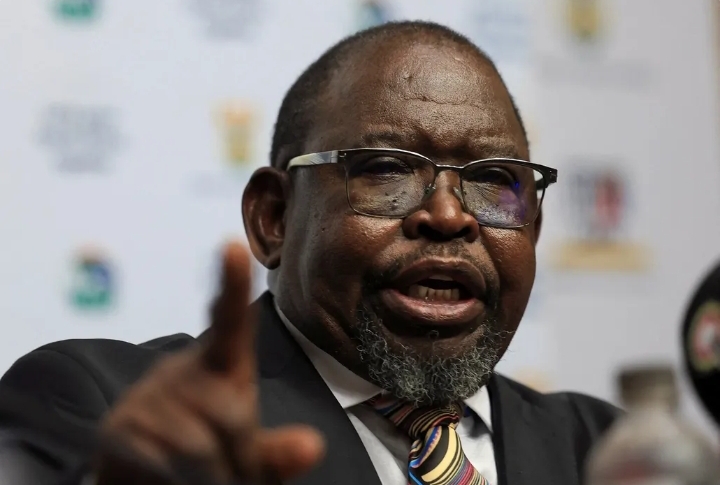South African Finance Minister Enoch Godongwana rejected calls for his resignation after reversing a planned VAT hike. The decision, aimed at stabilizing the coalition government, creates a $4 billion budget gap. Godongwana will now focus on developing a new fiscal framework, which could influence South Africa's credit rating.
South Africa's Finance Minister Rejects Resignation After VAT Hike Reversal


South African Finance Minister Enoch Godongwana stated on Thursday that he will not resign despite the government's reversal on a planned value-added tax increase, even though there have been calls for him to step down. Speaking to Reuters on the sidelines of the International Monetary Fund and World Bank spring meetings in Washington, he explained, "My job is to introduce money bills – nothing says they must be popular."
Godongwana, who arrived in Washington this week already facing the most significant strain in U.S.-South African relations in decades, was forced to cancel the proposed increase in value-added tax on Thursday. This move came after the proposal, which aimed to raise VAT by 1 percentage point over two years to increase state revenue, faced strong opposition. South Africa, as Africa's most industrialized economy, is struggling with slow growth and public dissatisfaction over rising living costs.
The decision to reverse the VAT hike results in a 75 billion rand ($4 billion) gap in the medium-term budget, leaving Godongwana with the task of creating a new fiscal framework that aligns with the current realities of revenue and expenditure. "I still maintain that if the purpose for which the VAT was raised is taken into account, its reversal will have a negative impact on those issues – that cannot be disputed," he remarked.
The new fiscal framework will be closely scrutinized by S&P Global Ratings, which currently holds a positive outlook on South Africa. A well-executed framework could lead to the first credit rating upgrade for South Africa in two decades. However, failure to present a sustainable budget could raise future borrowing costs and reduce investor confidence in the country.
When asked about the impact of public criticism, Godongwana responded, "If you ask me, I don't think what will inform them is the noise. What will trigger them is whether the final product is a sustainable budget."

 বাংলা
বাংলা  Spanish
Spanish  Arabic
Arabic  French
French  Chinese
Chinese 
